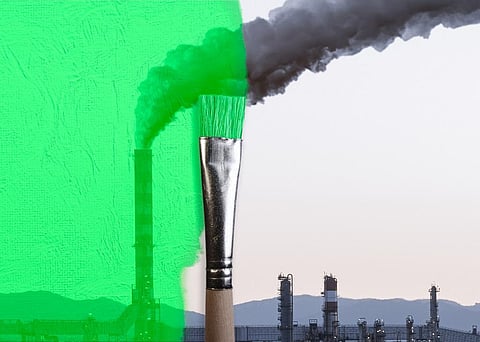

The European Union (EU) is all set to contain greenwashing by 2026. On September 19, 2023, the EU finalised a new draft rule banning advertisements that mislead customers with false sustainability promises.
The law will be rolled out in 2026 after receiving final approval from the European Parliament as well as the Council. Member states will have two years to incorporate the new rules into their laws and adopt the changes.
The rule will impose stricter guidelines on environmental claims, mandating verifiable proof of recognised performance. This will likely prevent the businesses from making tall general environmental claims like “environmentally friendly”, “natural”, “bio-degradable”, or “climate neutral” without evidence.
The claims based on emissions offsetting that label products as neutral, reduced or positive, based on their environmental impact, are banned under the new regulation, stated EU parliament in a statement.
“We are clearing the chaos of environmental claims, which will now have to be substantiated, and claims based on emissions offsetting will be banned,” said Biljana Borzan, vice-chair, Group of the Progressive Alliance of Socialists and Democrats in the European Parliament, who led the negotiations.
The move is critical to combat misleading green claims and ensure transparency. The rule has been welcomed by non-profits such as Carbon Market Watch (CMW). CMW and allied organisations have been campaigning intensely for the EU to instate such a ban.
“Carbon neutrality claims have been shown to be unintelligible to consumers, and they must stop. Today marks the end of outlandish and baseless advertisements that tell European consumers that they can take carbon-neutral flights, wear carbon-neutral clothes and eat carbon-neutral food,” stated CMW
This will help the consumers to make informed choices, thereby encouraging sustainability.
The European Consumer Organisation BEUC responded to the move, saying the rule will better safeguard consumers against greenwashing, educate them regarding how robust and repairable products are, and outlaw unethical business activities that shorten product lifespans.
EU’s new rule could have ripple effects on the voluntary carbon market, as well as for other EU legislation currently in the pipeline, which includes the upcoming Green Claims Directive and the Carbon Removal Certification Framework (CRCF), said CMW.
“The EU is sending a powerful signal to the voluntary carbon market: The era of offsetting is over, and carbon credits can’t make up for buyers’ pollution,” said Gilles Dufrasne, policy lead on global carbon markets at CMW.
In order to ensure consumers obtain trustworthy and verifiable information for making sustainable decisions, a mandate was issued in 2019 as part of the EU Green Deal.
The Green Deal is a set of legislative proposals that attempts to put the EU on a green transitional path with the objective of achieving carbon neutrality by 2050. The new regulations contribute towards the EU’s larger goals to attain net zero emissions by 2050.